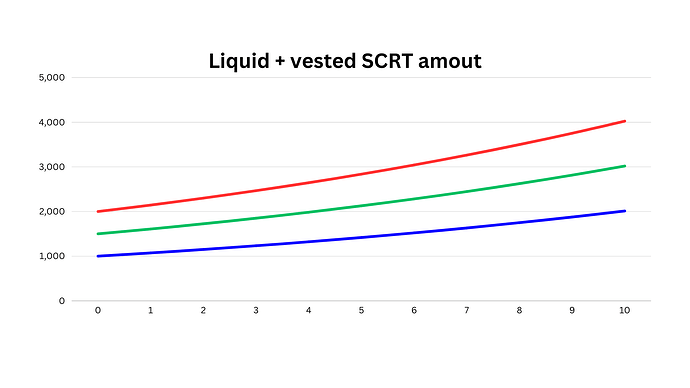Hi everyone, I would like to start a discussion here regarding incentivizing contributions to the Secret Network ( whether it be community management or code level contributions for example in Secret University ) using permanently freezed SCRT.
Motivation:
The reason for introducing this mechanism, or at least the ability to choose, is to incentivize people who agree at the code level not to sell their SCRT that they get for working on the network.
People who do so prefer long-term support of the network, participation in governance, support of validators, over the immediate sale of their “paycheck”.
The motivation behind the discussion is to find a way to make these people more motivated to do so and thus support the Secret Network in the long term.
Absract:
People who agree to permanently locked SCRTs will be able to stack their SCRT, vote, earn ( already fully liquid ) rewards for staking, but will no longer be able to sell/send it to anyone.
Motivation to lock
What I propose to incentivize people to lock their paycheck is simply to increase their reward.
They are thus depriving themselves of actual profit, to the potential benefit if the network succeeds and increases its share of governance
I attach a 5-year projection of 1000 SCRT, 24% APR, weekly autocompound at: No-lock, +50% and +100%
As you may notice, if the incentives were +50% ( i.e. 1000 SCRT → 1500 SCRT ), achieving the same ability to sell as without the lock occurs around 4.6 years, as opposed to +100% occurring around 3 years
Problem:
The SCRT has been experiencing inflation reduction discussions for the last half-year, if inflation should be reduced, the chart will obviously look different.
It is therefore necessary to discuss by how much % the amount should be increased.
Here is an same example at 7% APR, 10-year projection:
Let’s discuss!


